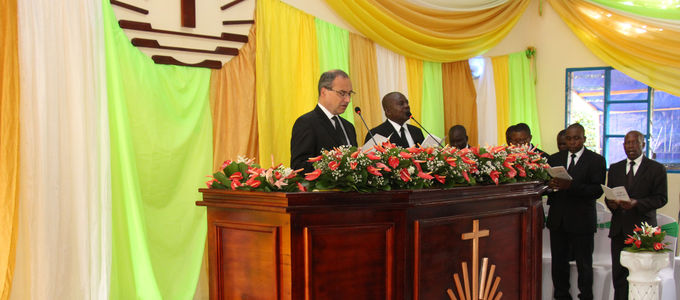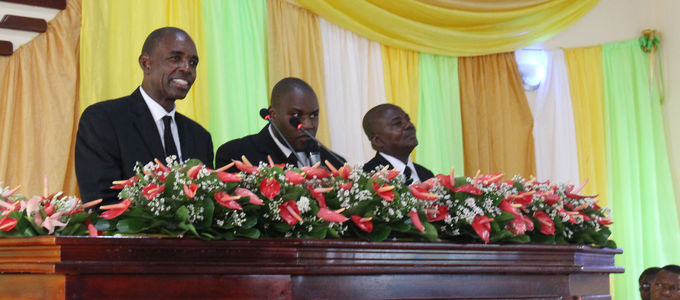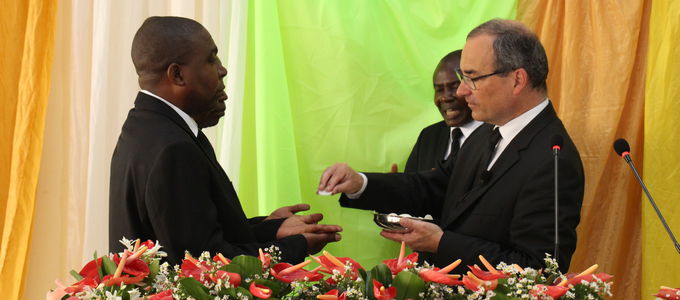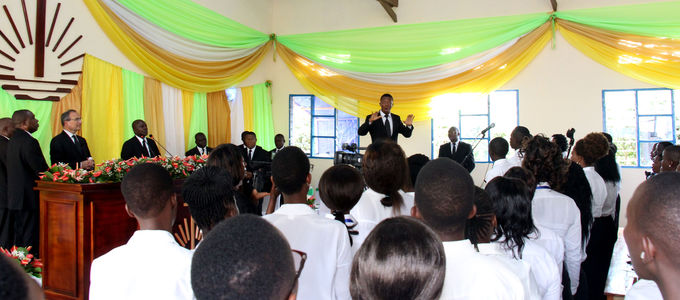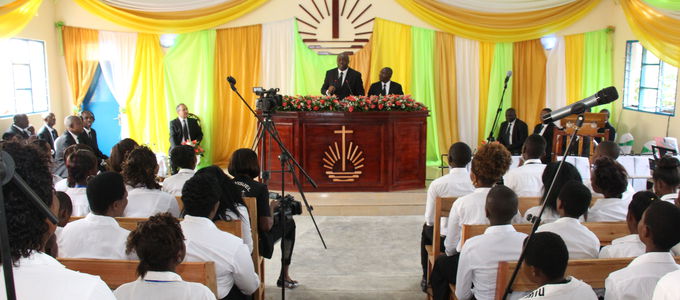
Where is God now? This is a question many people ask when disaster or misfortune strike. How can we help such people? Certainly not with the wrong answers. In a recent service, the Chief Apostle offered an alternative.
“The Lord is near to all who call upon Him, to all who call upon Him in truth. He will fulfil the desire of those who fear Him; He also will hear their cry and save them” (Psalm 145: 18–19). This was the Bible text the Chief Apostle used in a divine service in Bujumbura (Burundi) on 3 March 2019.
Whether in this world or in the beyond: for many people it is not easy to believe in Jesus Christ, Chief Apostle Jean-Luc Schneider said. When people hear: “The Lord is near to all who pray,” many could respond: “That is not true. I was in great distress, but God did not come to my aid.” Or: “Look at all the things that are happening in the world. Where is God in all of this?”
Answers that raise questions
Such questions often lead to answers that are not very helpful, the Chief Apostle said.
“If I were to now describe God as someone who punishes sinners, then I would be wrong.” There are people, the Chief Apostle continued, who behave very, very badly in life, but whose life gets better and better.”
Another explanation is: suffering is not the work of God, but the consequence of bad decisions made by people. However, when a volcano erupts, the Chief Apostle continued, it is not due to the wickedness of human beings. And when there is an earthquake, people have nothing to do with it.”
Sometimes people say: “Yes, but God plunges you into misery so that you can come closer to Him.” But there are many countries where people do not believe in God. When they are plunged into disaster or misfortune, the Chief Apostle said, it does not bring them closer to God, but takes them even further away from Him.
We only ever see a small part
The Chief Apostle compared such answers with the story of the five blind men and the elephant. One of the men, who placed his hand on the side of the elephant, said it was a wall. Another one said that the animal’s trunk was a thick snake. Another said that its leg was a pillar, its tusk a spear, and its tail a rope. “Each of the men described the elephant as he experienced it, and they were all right. But because they only felt a very small part of the elephant, they could not get an overall picture.”
This is a very nice example for our relationship with God, the Chief Apostle said. “Everyone has his own idea of God, which is certainly justified. But it is always incomplete.” Because humans are far too small to understand God in His entirety and in His glory. The Chief Apostle went on to say, “That is why we approach Him with holy awe. We cannot understand what He does, but we trust Him.”
Don’t explain, set an example
“We cannot explain the distress and misfortune of people here on earth or of souls in the beyond,” the Chief Apostle made clear. The only thing we can say is, “Look, I know one thing: God loves you. I know that He wants you to be with Him in His kingdom forever.” And we can tell people that we are convinced that the kingdom of heaven is so big and beautiful, so wonderful, that all misfortune and pain will be forgotten.
The Chief Apostle said that is not enough to just talk about it, however. We have to show our conviction in our own lives. “We prove that fellowship with God is good, if we regularly attend the divine services. We prove that fellowship with God is something great, if we always seek fellowship with God in prayer. And let us show our love for our neighbour by asking God: ‘Give him or her the same treasures that You have given us.”
In summing up, the Chief Apostle said: “By setting an example we can bring testimony here on earth and in the beyond. That is our mission.”









